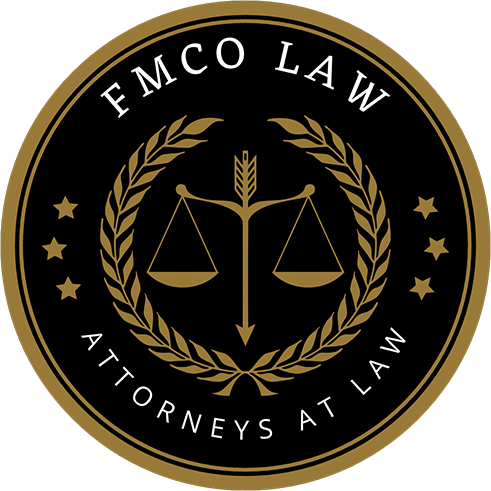Carol, a single mother of two, worked hard and never missed a day of work. Her job did not allow for paid time off, and she wanted to make sure that her boss saw her as a reliable worker. Then, early on in the pandemic, she contracted the coronavirus. Her symptoms were mild, but her fears went into high gear. She felt like she was forced to choose between her paycheck and the public health measures that were needed to combat the virus, such as staying in quarantine for two weeks.
Luckily for Carol, and employees across the country, Congress passed the Families First Coronavirus Response Act (FFCRA) in March 2020. The FFCRA was directed at just the kind of dilemma employees like Carol were facing. The law required employers to provide employees with paid sick leave or expanded family and medical leave when they needed to care for themselves or their family due to the coronavirus.
Unfortunately, those paid sick leave and expanded family and medical leave requirements of the FFCRA just expired on December 31, 2020. That does not mean, however, that you are no longer eligible for paid sick leave due to the coronavirus. A new law, passed at the end of 2020, still may allow you to be eligible.
In this article, we will review the basics of the FFCRA and, more importantly, tell you whether you still may be able to receive paid sick leave or expanded family and medical leave due to the coronavirus. If, after reading this article, you have more questions about paid sick leave during the pandemic, we welcome you to call the employment law attorneys at Foote, Mielke, Chavez, and O’Neil. We offer a case evaluation. Please contact us online or at 630-232-7450.
Employee Paid Leave Rights under the FFCRA
From March to December 2020, the FFCRA required certain public employers and private employers with fewer than 500 employees to provide their employees with paid sick leave and expanded family and medical leave for specified reasons related to the coronavirus. In general, employers were mandated to provide three main things:
• Two weeks (up to 80 hours) of paid sick leave at the employee’s regular rate of pay because the employee either contracted the coronavirus, or was experiencing symptoms and sought medical attention; or
• Two weeks of paid sick leave at two-thirds the employee’s rate of pay to care for a loved one for reasons related to the coronavirus; and
• Up to an additional 10 weeks of paid expanded family and medical leave at two-thirds the employee’s rate of pay to care for a child whose school or day care was closed due to the coronavirus.
The FFCRA also made sure that employers were not disadvantaged by those requirements. Employers, under the FFCRA, were able to claim dollar-for-dollar tax credits for the money they paid their employees for coronavirus-related paid leave.
FFCRA Paid Leave Benefits Are Extended to March 2021 – But Only if the Employer Does So Voluntarily
Even though the FFCRA’s coronavirus-related paid leave expired at the end of 2020, there is good and bad news related to paid leave in 2021.
As for the good news, Congress amended the FFCRA (with a law called the Consolidated Appropriations Act, 2021) that extends the employer tax credits for paid sick leave and expanded family and medical leave until March 31, 2021.
The bad news, however, is that the FFCRA extension no longer mandates that employers provide paid sick leave and expanded family and medical leave. Rather, employers have the choice whether or not to provide coronavirus-related paid sick leave through March 2021.
That is why the answer to the question: “Am I still entitled to Covid-related paid sick leave?” is a definite “maybe.” It all depends on whether your employer voluntarily allows the paid leave to continue.
The Practical Implications from the FFCRA Extension of Paid Leave
The changes to the FFCRA leave requirements have a few practical implications:
1. FFCRA leave is now at your employer’s discretion. If you were eligible for FFCRA leave during 2020 but did not use it or only used a portion of it, you will only be allowed to use such leave in 2021 if your employer permits it. Your employer is no longer legally required to provide it.
2. No additional FFCRA leave if you already used it. As noted above, the FFCRA generally allows for up to two weeks of paid sick leave and an additional 10 weeks of expanded family and medical leave. If you have already used your allowance of FFCRA leave in 2020, then you are not eligible for any additional FFCRA leave in 2021.
3. Employers still can take tax credits through March 2021. The FFCRA amendment allows employers to use the payroll tax credit to cover FFCRA leave through March 31, 2021. Those tax credits can be used to cover the costs of providing FFCRA leave in 2020 and to provide FFCRA leave on a voluntary basis through the end of March 2021.
4. No tax credits in 2021 for an employee who has already used FFCRA leave. Even if an employer is inclined to give an employee coronavirus-related leave in 2021, the employer cannot claim any additional tax credits if the employee has already used his or her allotted FFCRA leave time.
Call an Experienced Employment Attorney for More Information About Paid Sick Leave During the Pandemic
We are still in the middle of the pandemic, but the law is changing with regard to coronavirus-related paid sick leave. That is why we welcome you to contact the experienced employment law attorneys at Foote, Mielke, Chavez, and O’Neil. We can help you understand how the current paid sick leave and family leave laws will impact your own personal circumstances.
You can contact us online or by calling 630-232-7450.

